Dreaded Dead Zone Found in Gulf, East of Louisiana Near Mississippi Sound
A New Orleans Advocate article published Thursday, Aug. 8, 2024 reported that in late July, Louisiana State University researchers found a hypoxic “dead zone” east of the Mississippi River. A hypoxic dead zone is an area of water with low levels of dissolved oxygen and cannot support aquatic life. Read Advocate Article HERE.
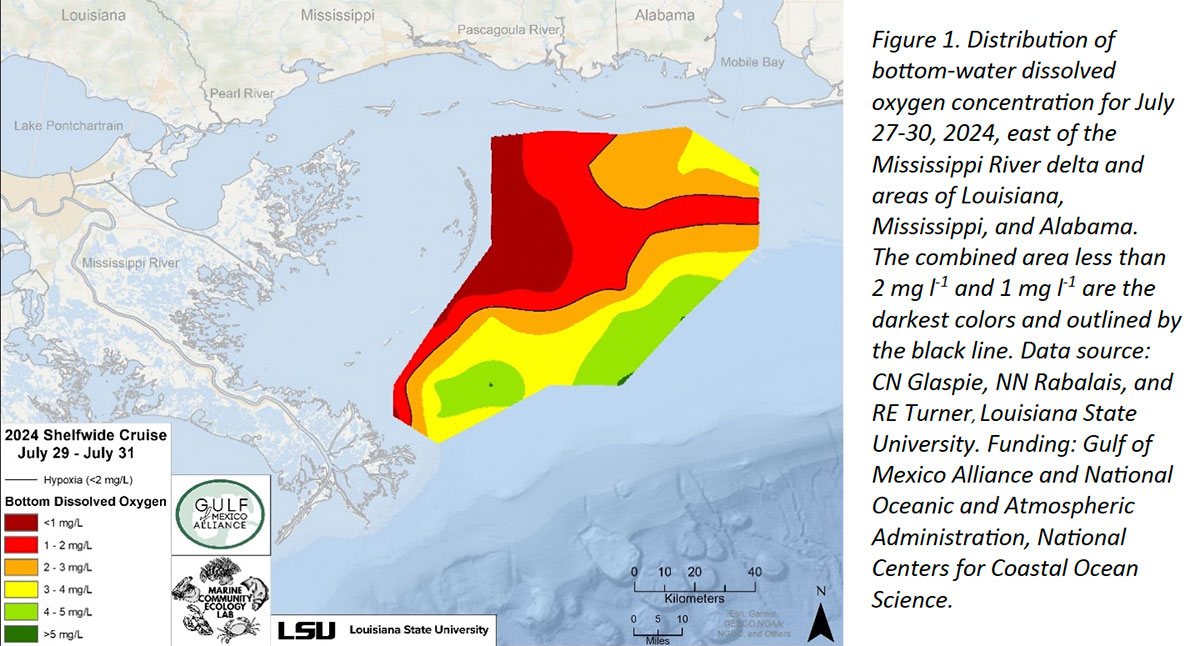 Water primarily from the Mississippi River carries “nutrients” (fertilizers) that come from farmland runoff in the 31 states upstream that feed into the Mississippi River basin. Those nutrients cause algae to “bloom.” When the algae dies, it sinks to the bottom, decomposes and uses up the oxygen.
Water primarily from the Mississippi River carries “nutrients” (fertilizers) that come from farmland runoff in the 31 states upstream that feed into the Mississippi River basin. Those nutrients cause algae to “bloom.” When the algae dies, it sinks to the bottom, decomposes and uses up the oxygen.
The science crew aboard the Research Vessel (RV) Pelican found the eastern Gulf dead zone to be 1,634 square miles (or between the size of Rhode Island and Delaware.) This is the same LSU research team that measured the well-known “western Gulf dead zone” the week before. The team found that the western Gulf dead zone that shows up west of Louisiana and south of Texas had grown from last summer’s 3,058 square miles to more than 6,700 square miles (or between the size of Connecticut and New Jersey.)
According to the actual LSU report summary obtained by the Mississippi Sound Coalition, “The measured area of bottom-water low dissolved oxygen was large to the east of the Mississippi River and its delta and extended from the Chandeleur Islands, Louisiana to as far as Mobile Bay, Alabama, and perhaps further to the east. Logistical constraints called the RV Pelican and the science crew back to the dock, and the eastern extent was not closed off.”
The team was not able to measure oxygen levels west of the Chandeleur Islands or in the actual Mississippi Sound. However, the fact that there is now a large dead zone in the Gulf just south of the Mississippi Sound is a significant development.
As outlined in the report, “The Mississippi River delta is a ‘leaky’ system and fresh water from the river escapes the lower portions of the river and moves into the areas west and east of the river and delta. The Mississippi River discharge overwhelms any local river input into the northern Gulf of Mexico.”
“This new data demonstrates again that, at least as far as water pollution goes, what happens upstream doesn’t stay upstream. It’s past time for a national effort to stop nutrient pollution in the Mississippi River.”
Gerald Blessey, MSSC Manager, as quoted in the New Orleans Advocate
LSU'S FULL REPORT BELOW
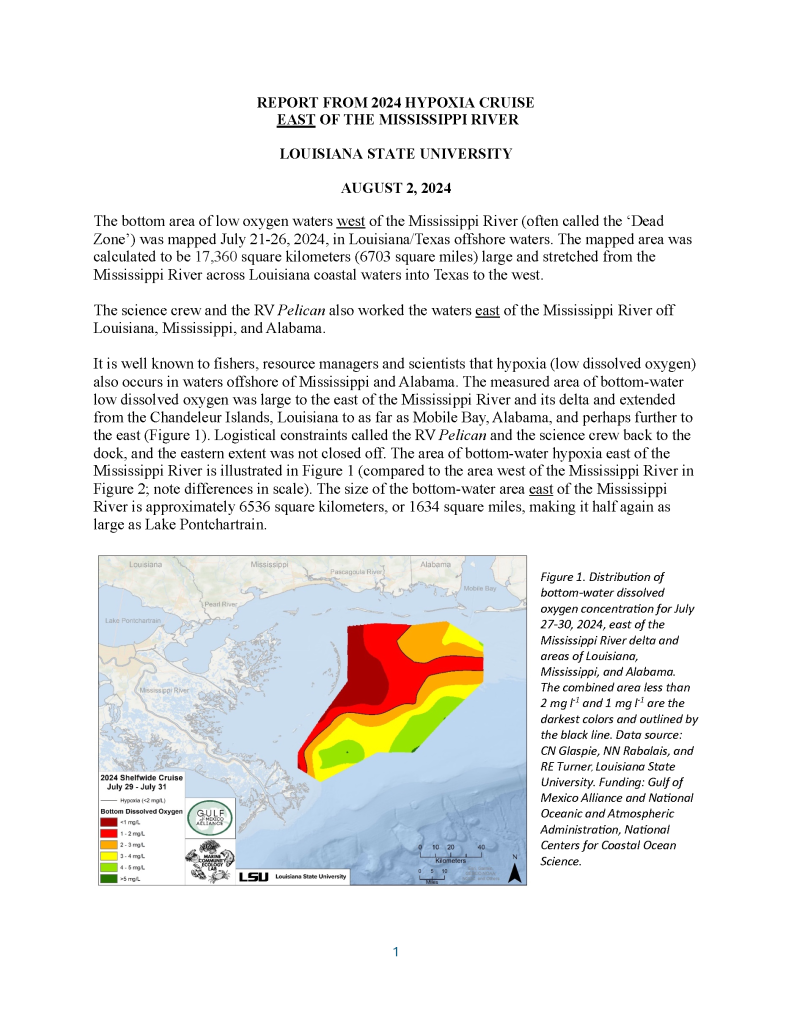
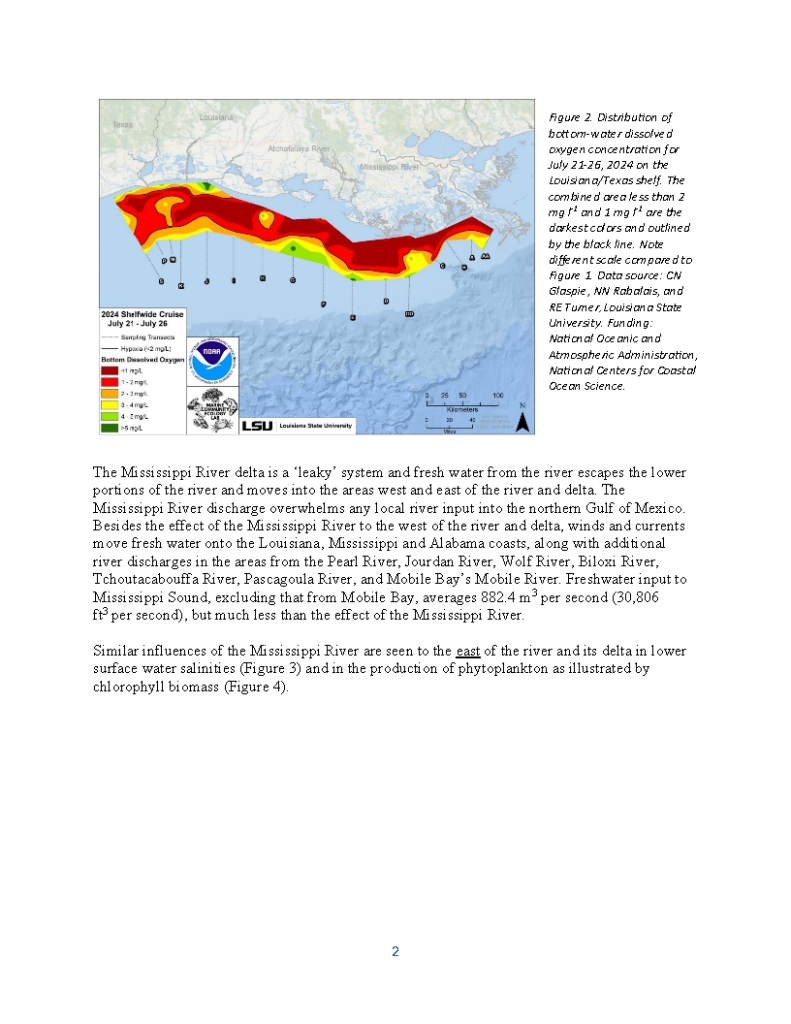
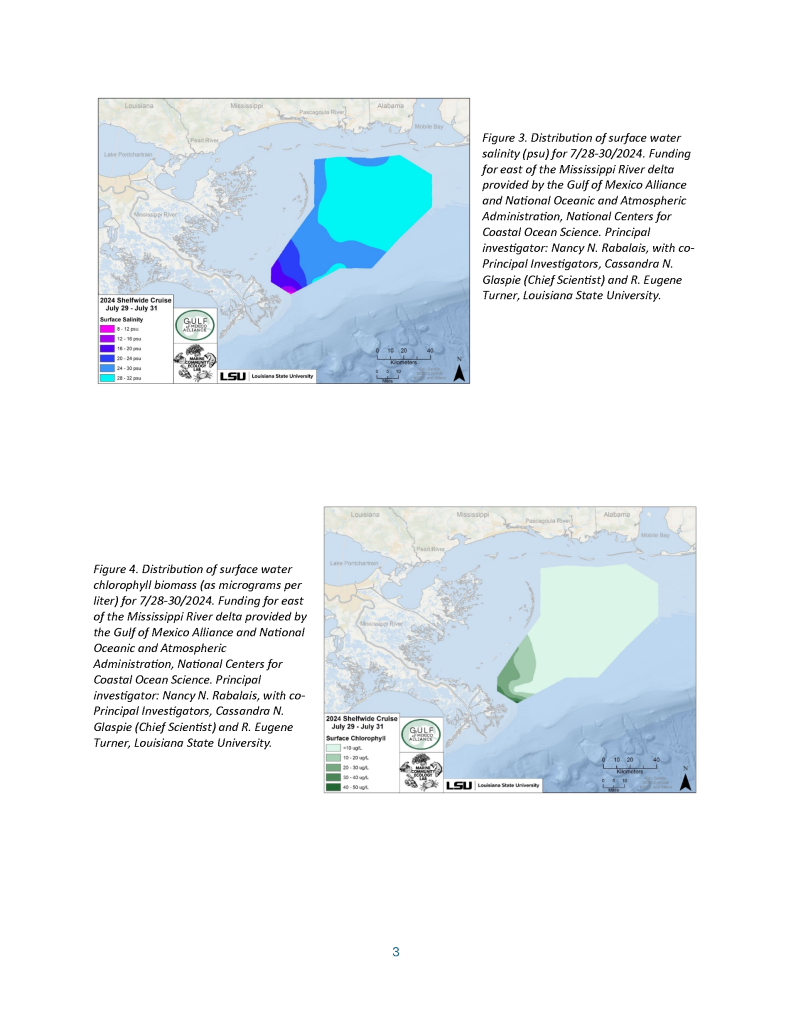
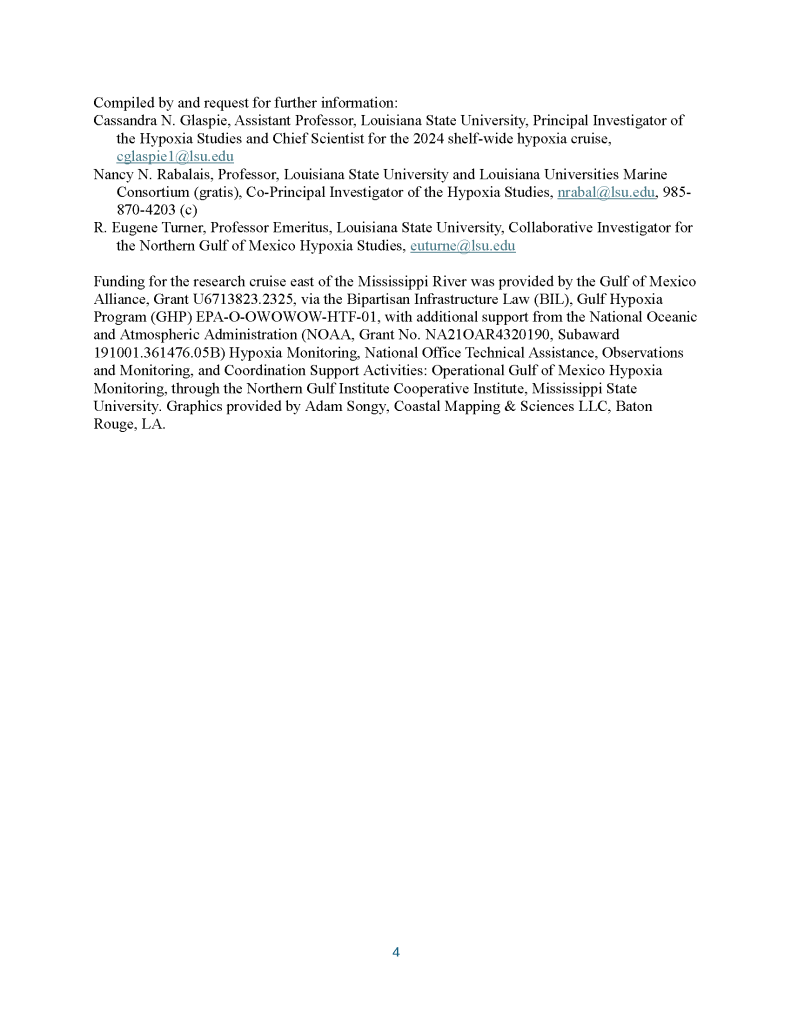
STAY IN TUNE WITH COALITION ACTIVITIES
The Mississippi Sound Coalition invites members of the public, organizations, political leaders and others who have an interest in its cause to please sign up to receive email updates and follow us on social media:
About Mississippi Sound Coalition (MSSC)
The Mississippi Sound Coalition (MSSC) desires to restore and protect the Mississippi Sound estuary and the economy and way of life that depend on it. Its efforts are focused on causing changes in public policies at national, state and local levels to prevent further damage from the polluted water of the Mississippi River that is released periodically by the U.S. Army Corps of Engineers from the Bonnet Carré Spillway in Louisiana and intrudes into the Mississippi Sound. MSSC also focuses on other threats to the Sound such as the Mid-Breton Sediment Diversion project, also in Louisiana. The Coalition provides public education on the subject, and, if necessary, engages in litigation. Members of the Coalition include Harrison County, Hancock County, the Mississippi cities of Biloxi, D’Iberville, Gulfport, Long Beach, Pass Christian, Diamondhead, Bay St. Louis, Waveland, Ocean Springs, Gautier, Pascagoula, the Mississippi Hotel & Lodging Association, and the Mississippi Commercial Fisheries United.
Please see our Litigation and Resources page for more information.